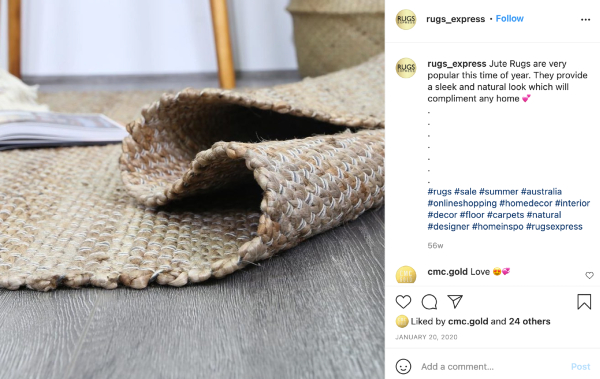Hypoallergenic Rugs
Posted by Rugs Express; Australia's Number One Online Rugs Retailer on 1st Apr 2022
Hypoallergenic Rugs.
What Are Hypoallergenic Rugs And Their Benefits?
If you suffer from allergies it can be difficult to decide on a flooring type. Some allergy sufferers opt for hard flooring in favour of carpets or rugs, but this may not always be the best option.
"Carpets can trap allergens in their pile, while hard floors allow the allergens to float around. However, some modern carpets contain products that reduce mould and dust mites, which are common asthma and allergy triggers."
- Sensitive Choice (not-for-profit created by the National Asthma Council Australia)
While we can't offer specific advice on what rugs are best for individual allergies, we can help you understand the different types of fabrics on the market so you can make an informed choice.
Here's some general information that may help you decide which type of rug is most suitable for you and your family.
Flooring Options For Allergy Sufferers
Mould, bacteria, dust mites and dust are common triggers for allergy sufferers. And there's a common misconception that carpet is one of the main harbours of these allergens. However, a 2005 study conducted by the German Allergy and Asthma society found that removing carpet has not been demonstrated to reduce dust mite allergen exposure. In fact, wall-to-wall carpet was found to reduce dust in the air by 50% compared to levels found in the air above hard flooring surfaces.
"A properly maintained carpet traps dust particles, removing them from the breathing zone and, compared to hard surfaces, particles are retained within the carpet pile structure."
- Carpet Institution of Australia Limited
Rugs are just as effective at removing allergens from the air as long as they are properly maintained.
What Rugs Are Best For Allergies?
Sisal, Cotton, Jute and Wool are all natural fibres and may benefit allergy sufferers. Wool rugs are an excellent choice for those concerned about mould and mildew as Wool is naturally resistant to these allergens.
Both sisal and jute rugs are low pile and intricately woven which prevents shedding and the release of rug fibres into the air.
Man-made fabrics are also suitable for allergy sufferers. For example, our range of heat-set polypropylene rugs look and feel similar to wool, but are much easier to clean and are resistant to mould and mildew.
In general it's best for allergy sufferers to avoid rugs with long fibres. Sensitive choice recommends regular vacuuming for all rugs and avoiding any cleaning that involves moisture.
So, What Are Hypoallergenic Rugs And Are There Other Benefits?
If you have allergies, then it is important to know what kind of carpet will work best for your situation. A rug that claims itself as "hypoallergenic" may not completely solve the problem, as hypoallergenic rugs are items that cause or "claim" to cause fewer reactions to allergies.
Hypoallergenic materials can be made from many different sources such as polyester and nylon. These fabrics do not contain any organic elements, so they provide an inhospitable environment for allergens to nestle into your skin which prevents future reactions in this area. There some wonderful polyester and nylon based hypoallergenic rugs online at Rugs Express.
Because hypoallergenic rugs are made of these synthetic materials, they are often cheaper too. So if whether you're looking to reduce allergens, or save on some cash, hypoallergenic rugs might be the right choice in any case.
And finally, they are more resistant to stains and dust, and typically more durable. This is great for high traffic areas, or where the kids run around, keeping the stains off your rugs.
So for all of these benefits, consider a hypoallergenic rug, not just as an anti-allergen, but as a more resistant and cost-effective solution for your home.


